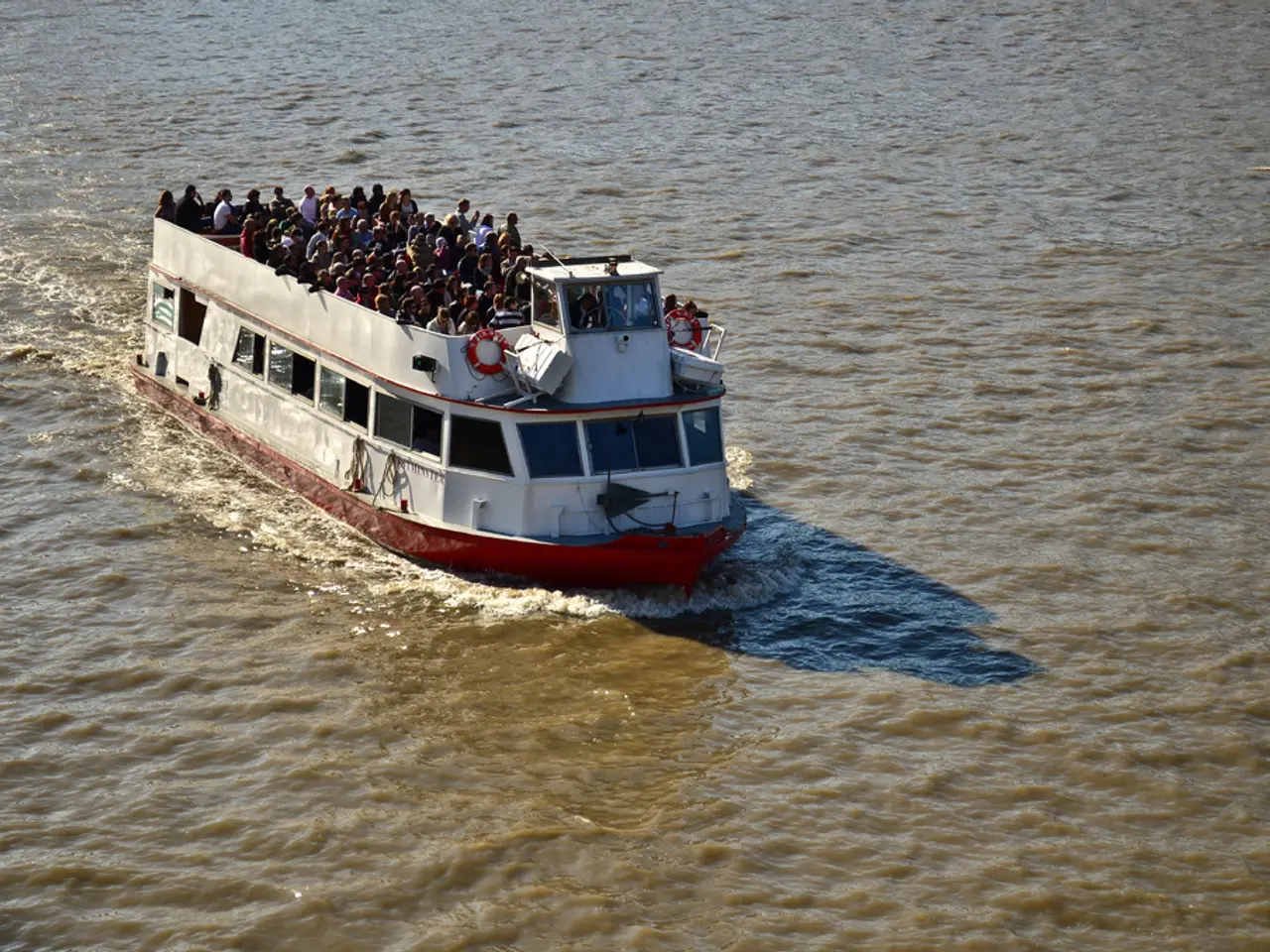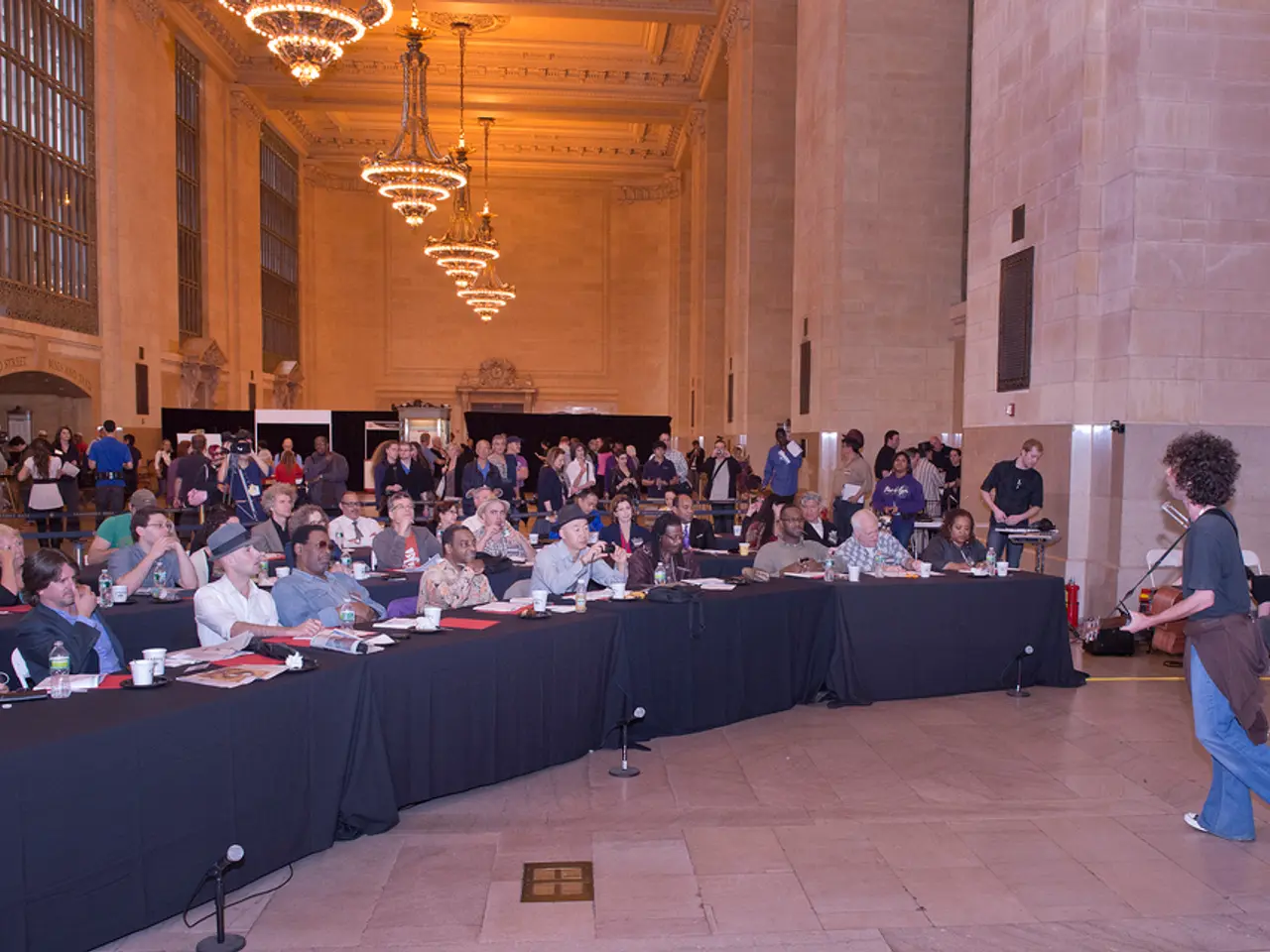Ships set to commence voyages imminently
The Mosel River, a vital inland waterway connecting Germany and France, has been hit by another setback as a passenger ship collided with the gate of the Sankt Aldegund lock in the Cochem-Zell district on Wednesday afternoon. This incident follows a similar accident at the Müden lock in December 2024, causing significant disruptions to shipping and the regional economy.
On July 2, 2025, a passenger ship damaged the Sankt Aldegund lock, situated between Koblenz and Trier. This incident halted freight shipping on the river, as vessels can no longer pass through the damaged lock in either direction. The stoppage comes shortly after a similar accident in December 2024 that damaged a lock at Müden, south of Koblenz, which had previously closed the river to shipping for about two months before reopening early in 2025.
The Mosel River is a crucial artery for transporting grains and rapeseed between Germany and France. The lock closures have disrupted this vital trade corridor, causing significant delays and impacting agricultural commodity movements and related industries. In the December incident, the disruption was severe enough that Euronext suspended physical delivery of rapeseed futures to river ports in eastern France, highlighting the wider economic ramifications of such lock failures.
German authorities, including Federal Transport Minister Patrick Schnieder and the head of the river navigation authority (WSA) Eric Oehlmann, have emphasized urgent efforts to repair the Sankt Aldegund lock and resume operations as soon as possible. Initial assessments suggest the lock’s concrete structure and drive mechanisms may not be severely damaged, allowing possibilities for limited operations to help clear waiting vessels. If the lock cannot be immediately repaired or operated, authorities plan to deploy emergency locks using temporary water control barriers, a strategy successfully implemented during the Müden lock closure last winter.
Technical inspections began immediately after the July accident, with attempts to reopen the lock on a limited scale scheduled to start as soon as the weekend following July 3, 2025. Full repair timelines remain uncertain, with officials cautioning that complete restoration might take longer, especially if temporary solutions must be used initially. Approximately 50 inland waterways freighters were reported stranded on the river as of early July, creating urgency to restore passage for these vessels first and then normalize shipping schedules.
Economy and Transport Minister Daniela Schmitt (FDP) has emphasized that all involved authorities are working tirelessly on solutions. She described the ship accident at the lock in St. Aldegund as "another low point for shipping and freight transport on waterways." To maintain local supply chains, the Rhineland-Palatinate state government has lifted the Sunday driving ban for trucks affected by the lock closure. Three people were injured in the accident.
Federal Transport Minister Patrick Schnieder is planning to visit the site in the evening to assess the situation. The first cargo ships may potentially be transported through the lock in Sankt Aldegund this weekend, depending on the progress of the repairs. These developments underscore the importance of maintaining infrastructure resilience on critical inland waterways like the Mosel to safeguard supply chains and economic stability.
- The ongoing disruptions in shipping on the Mosel River due to accidents like the recent collision at Sankt Aldegund lock and the previous incident at Müden lock have modern-day policymakers and legislation bodies pondering over strategies to enhance the resilience of such waterways.
- Apart from the immediate impact on the shipping industry, sports-betting platforms have begun to notice the ripple effects of these accidents, as they have observed a decline in bets tied to European soccer leagues which traditionally rely on shipments via the Mosel River.
- The general news has highlighted various investigations into the causes of these accidents and fingers might be pointing towards war-and-conflicts in the region as a possible culprit, as smugglers might be causing deliberate damage to infrastructure for criminal intentions.
- Simultaneously, reports of crime-and-justice have suggested increased illicit activities around the Mosel River as a result of the lock closures, with migration efforts perhaps taking center stage as stranded ships become potential transport options for those seeking refuge across borders.
- The question of whether these accidents constitute accidental or deliberate events leads us to the realm of politics, as politicians and the media scrutinize developments closely, speculating on the potential motives behind these incidents and how they may be exploited for political gain.
- Meanwhile, car-accidents and fires elsewhere in Germany and France have dominated the daily headlines, reminders that while the Mosel River continues to pose unique challenges, the world beyond the waterway moves relentlessly forward with incidents of its own.





